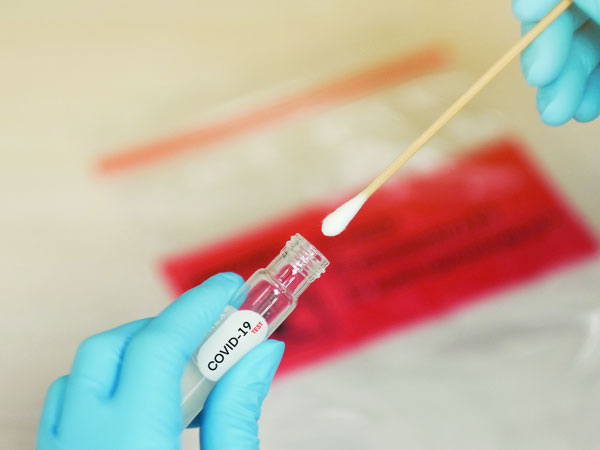Molecular tests are commonly used to confirm COVID-19. But they need to be performed in a laboratory by trained technicians as they need special equipment. This limits the number of tests that can be performed each day
COVID-19 continues to spread in India. As of May 17, more than 88,000 cases have been diagnosed, and over 2,800 people have died. To combat it, the Government is rapidly ramping up testing: the number of laboratories performing COVID-19 tests has increased from 19 in March, to 520 today. More than two million tests have been performed across the country since the pandemic began.
Why is testing such an essential part of our country’s defence strategy? One critical reason is that it is actionable now. And while a vaccine may be over a year away, testing will continue to be crucial to the roll out of both treatments and vaccines once they are available.
Testing allows infected people to be identified and isolated quickly, so they can receive care and the chain of transmission can be broken. It also provides essential information to our public health decision makers.
The majority of confirmatory testing in India and across the world has, to date, been performed using molecular tests. These look for genetic material from SARS-CoV-2 — the virus responsible for COVID-19 — in a sample from a person’s nose or throat. If it is present, they make millions of copies until the concentration is high enough to detect. The chemical reaction that drives the copying process is called polymerase chain reaction, and so this type of test is known as a PCR test.
As the most accurate, gold standard frontline test, molecular tests are most commonly used to confirm diagnosis of COVID-19 in an individual. But they need to be performed in a laboratory by trained technicians, as they need special equipment and infrastructure. This limits the number of tests that can be performed each day, and results are not immediately available.
Rapid tests that can be performed outside of a laboratory would enable us to reach more people, more quickly. These tests rely on our immune system: when we have a viral infection, our immune system recognises certain molecules on the surface of the virus, known as antigens, and mounts an immune response by producing antibodies to destroy it.
Antigen tests detect the antigens in a patient sample, but development of an antigen test accurate enough for diagnosis is challenging. Right now there are several antigen tests under evaluation, but none yet in general use.
Antibody tests detect the antibodies that have been produced during an infection. Due to uncertainties over how long it takes for the antibodies to be produced and for how long they continue to circulate after the infection is over, these tests cannot confirm if the person is currently infected by SARS-CoV-2.
However, antibody tests are crucially important to find out how many people in a particular population have already had the disease. Data from these tests can tell us how well our public health measures, like social distancing, are working. They also tell us about the intensity and longevity of the pandemic, to help guide public health decisions. A number of rapid antibody tests have been validated by the Indian Council of Medical Research (several of which are manufactured locally), and are already being rolled out across 75 districts. In future, these tests could be used to help inform deployment of vaccines.
Clinical trials for COVID-19 vaccines and drugs also rely on testing, using molecular tests to check whether vaccines have protected people from the virus or whether new treatments have helped infected people recover.
Testing is central to many aspects of the pandemic response, and countries that are implementing robust testing strategies are showing how this vital tool can save millions of lives.
The writer is Dr Sarabjit S Chadha Regional Technical Director FIND India
























